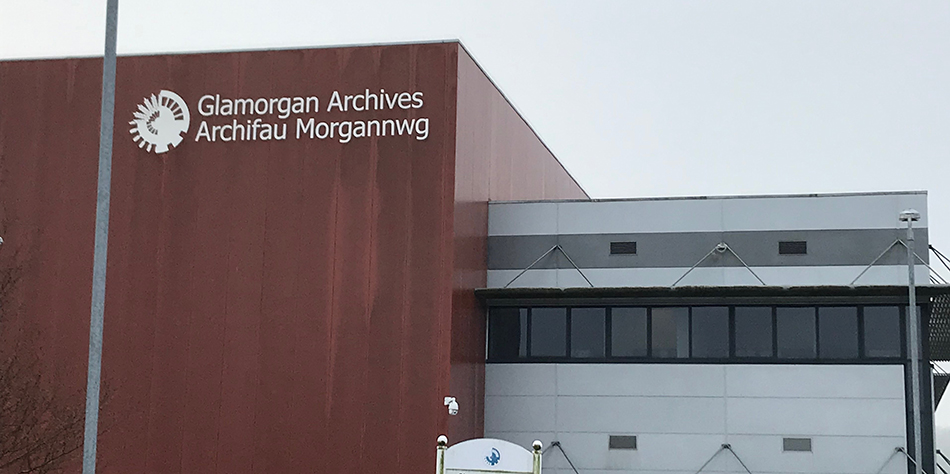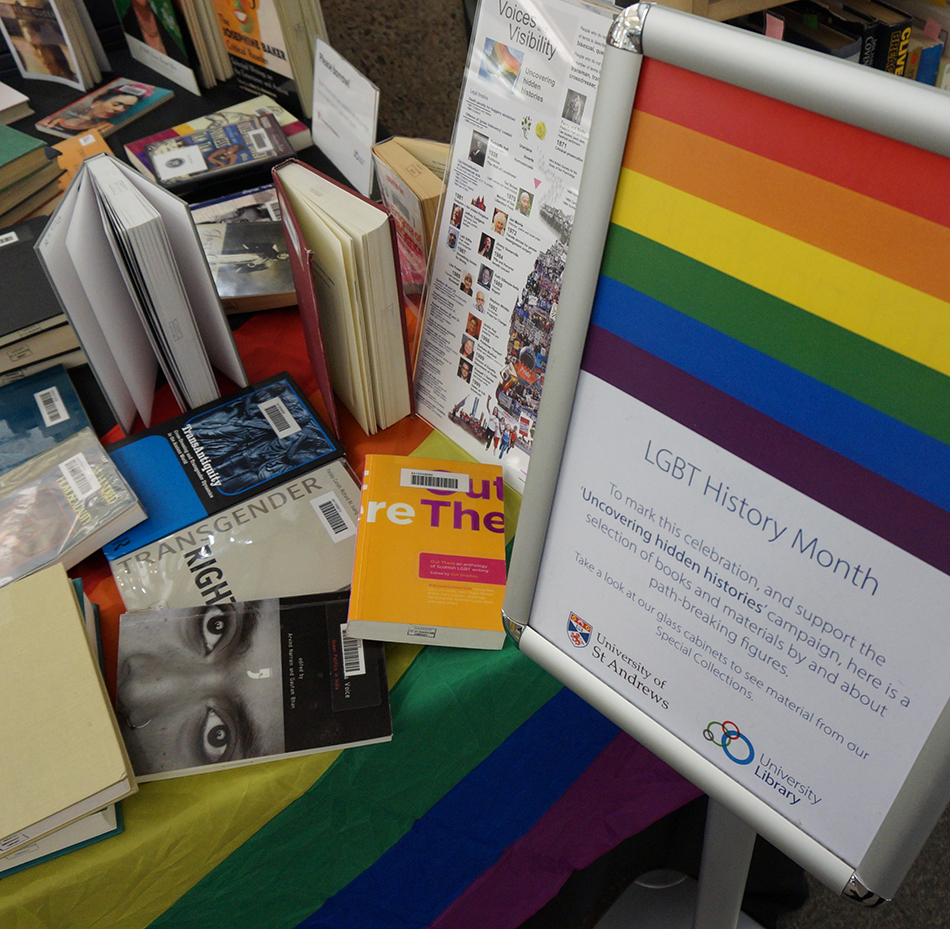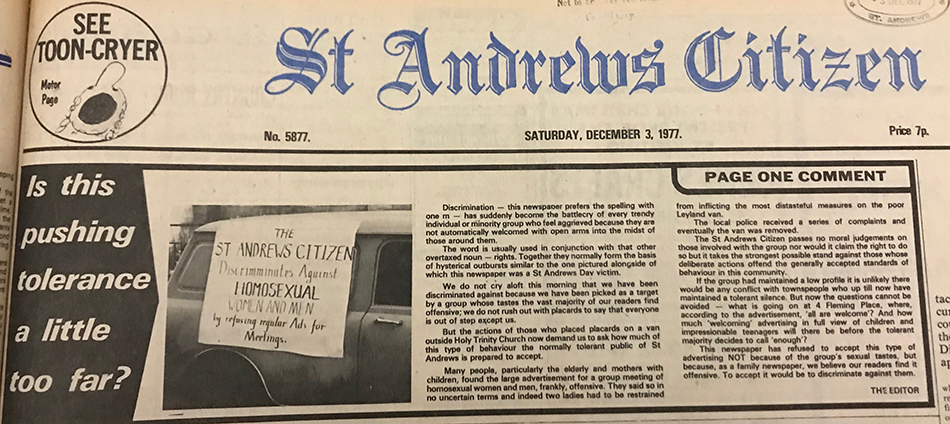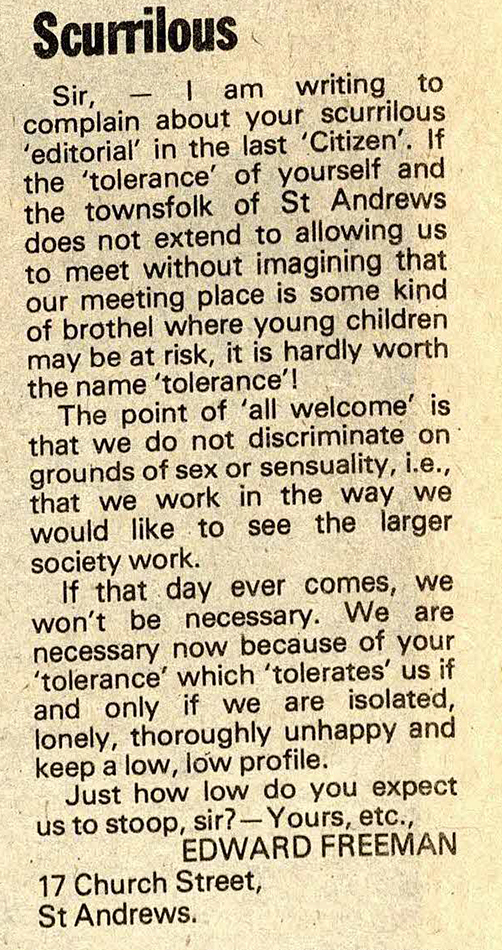LGBT History Month in the Library
Since 2005, the month of February has been observed as LGBT (lesbian, gay, bisexual and transgender) history month in the UK. The aim of LGBT history month is to raise awareness of both LGBT history and the issues affecting the LGBT community. The theme of this year’s history month is “Peace, Activism and Reconciliation.”
 While the study of sexuality and gender identity in history is perhaps still in its early stages, many libraries and archives have started to produce research guides for LGBT material within their collections. Last week a member of staff from the Special Collections team attended a training event titled “Queering the Archive” held at the Glamorgan Archives in Cardiff. This training session was based on the research guide ‘Queering Glamorgan: A Research Guide to Sources for the Study of LGBT History’ (available here), developed by Glamorgan Archives.
While the study of sexuality and gender identity in history is perhaps still in its early stages, many libraries and archives have started to produce research guides for LGBT material within their collections. Last week a member of staff from the Special Collections team attended a training event titled “Queering the Archive” held at the Glamorgan Archives in Cardiff. This training session was based on the research guide ‘Queering Glamorgan: A Research Guide to Sources for the Study of LGBT History’ (available here), developed by Glamorgan Archives.
The aim of the guide is “to encourage better understanding of historical and contemporary LGBT experience” within the historical county of Glamorgan. The guide was compiled by Dr Daryl Leeworthy and author and historian Norena Shopland, who specialises in LGBT history. Norena Shopland led the training session which was attended by a group of archive and museum professionals and independent researchers.
The day was divided into three sessions. The first tackled the question of terminology. Most of the common LGBT terms used now are modern (post-1960s). When looking at historical records new search terms are needed which fit the historical context. For this reason, the Glamorgan research guide includes a new glossary of LGBT terms, including those specific to Wales, to help guide the researcher. The second session offered a chance to use this glossary by looking at historical examples in newspapers.
Since male homosexuality was only decriminalised in the later half of the 20th century (partially in 1967 in England and Wales, 1980 in Scotland and 1982 in Northern Ireland) many of the types of record are criminal in nature, including reports of court cases in newspapers. This session illustrated how difficult it could be to determine if particular newspaper articles (examples can be seen in the guide) were examples of LGBT history – often because of the inscrutable language used. The research guide offers pointers on the searchable terms, such as ‘unnatural offence’ and ‘masquerading in male attire’, which could hint at a possible example of LGBT history. It was emphasised though that newspapers should be used as a starting point for further research, and that the full context of the case should be supported with archival documents such as police and court records and letters and diaries.
The second and third sessions of the day covered the different types of records that can be used when researching LGBT history, records which have been understudied, such as health records, and encouraged the participants to think about possible LGBT history guides they could produce for their own institutions.
Before attending this session, it was thought that the University of St Andrews Library’s Special Collections held very little relevant to LGBT history. Reflecting on the day, it is perhaps worthwhile for us to think further about the possible LGBT stories hidden within the collections but, perhaps more importantly, what we can do to document the LGBT+ stories of our current students and staff for future research.
***
 As part of LGBT history month, for the next few weeks the main University Library will have on display copies of material from Special Collections relating to LGBT authors such as Vita Sackville-West and composer and suffragette Dame Ethel Smyth, as well as newspaper articles relating to the early LGBT student society, GaySoc. Alongside the display will be books and DVDs from our main library collections relating to LGBT history which are available to be borrowed by all library users.
As part of LGBT history month, for the next few weeks the main University Library will have on display copies of material from Special Collections relating to LGBT authors such as Vita Sackville-West and composer and suffragette Dame Ethel Smyth, as well as newspaper articles relating to the early LGBT student society, GaySoc. Alongside the display will be books and DVDs from our main library collections relating to LGBT history which are available to be borrowed by all library users.


One of the items from Special Collections on display will be a copy of an article in the St Andrews Citizen from 1977 highlighting the dispute between the student society GaySoc and the newspaper. An editorial was published (3 December 1977) in reaction to a placard placed on a van on St Andrews Day (November 1977) protesting the newspaper’s refusal to publish advertisements for GaySoc meetings. The following week’s paper was full of letters from readers outraged by the intolerant comments made in the editorial.
More about the history of LGBT+ life at St Andrews and records of GaySoc (held by Glasgow Women’s Library) can be found on the University’s stories page: https://www.st-andrews.ac.uk/stories/2018/lgbt-life/.
Go Edward Freeman! Love his letter.